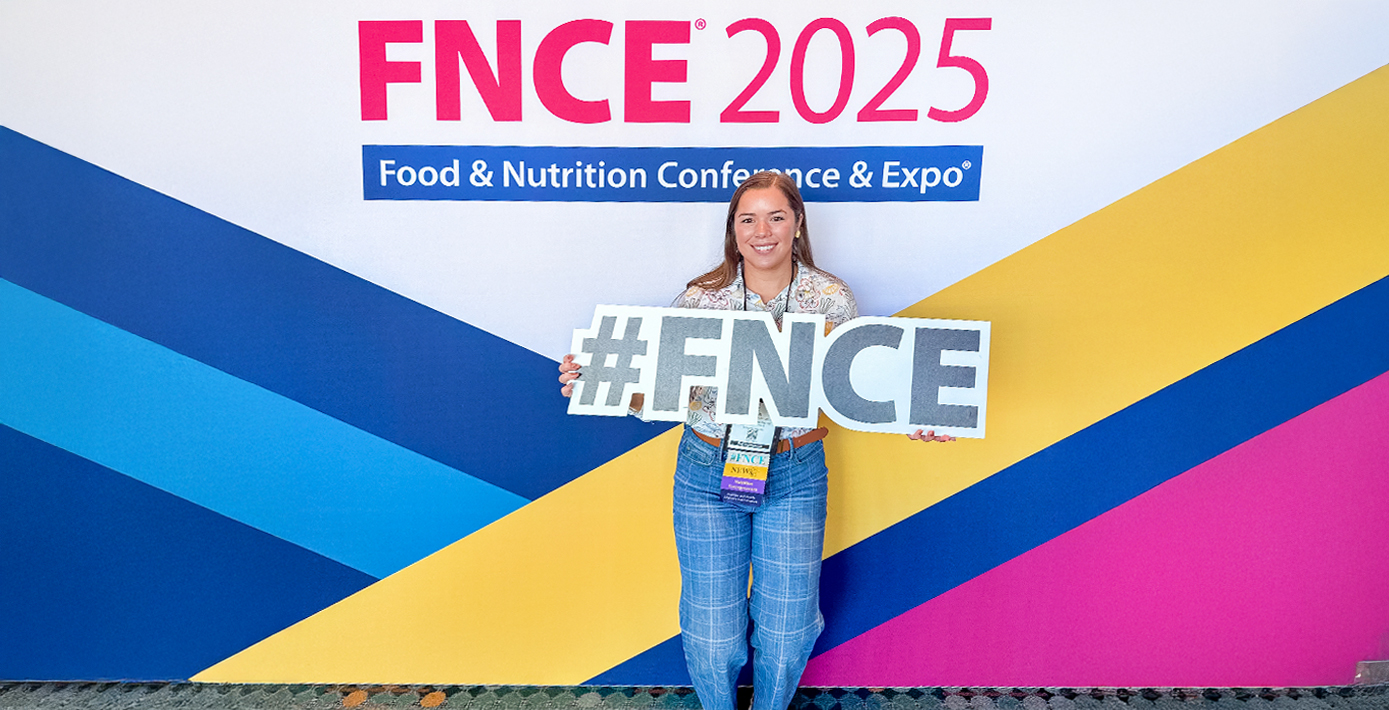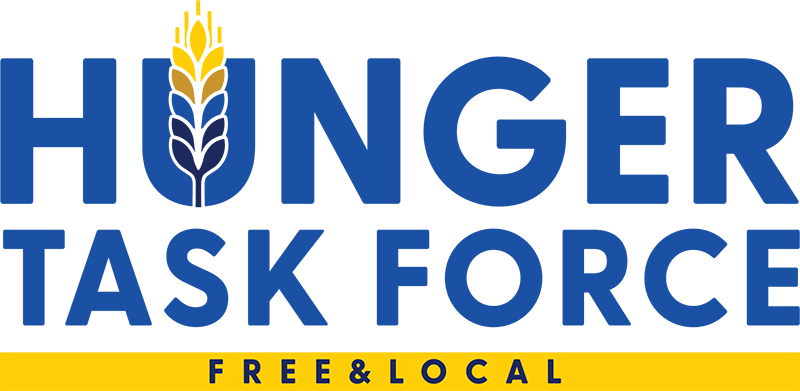Food, Culture and Change: Hunger Task Force Nutrition Educator’s Insights from FNCE 2025

Written by Leah Kostos, RDN, CPT, Community Nutrition Educator at Hunger Task Force.
———————————————
This year, I had the incredible opportunity to attend the 2025 Food and Nutrition Conference and Expo (FNCE) in Nashville, TN. The conference not only reinforced the vital work Hunger Task Force does in Milwaukee County but also provided valuable insights to further enhance our nutrition efforts.
Key Takeaways from FNCE 2025
1. Trendspotting: The Changing Food Landscape
The first session I attended covered food trends across the spectrum from politics to pop culture. I learned that food today is influenced by more than just flavor, and conversations around the MAHA movement have taken center stage, bringing both inspiration and concern.
Here are a few trends and tensions that were talked about:
- Ideology vs. Evidence: The MAHA movement has fueled debates around what’s “healthy,” from talk of banning seed oils and food dyes to labeling ultra-processed foods.
- Tech Meets Nutrition: Apps like Yuka now score foods by ingredient (labeled red, yellow or green), influencing what consumers buy.
- The FOMO vs. JOMO Effect: Post-pandemic, more people are finding “joy in missing out.” This might look like cooking restaurant-style food at home or making a barista-style coffee for half the cost.
Amid these trends, one truth stands firm, especially at Hunger Task Force: access and equity matter most. In another session I attended, for refugees, migrant workers, and non-citizen immigrants, the risk of food insecurity is 1.3 times higher than average. That’s where Hunger Task Force can continue to lead the way in ensuring nutritious food reaches everyone, regardless of background or circumstance.
2. Navigating the MAHA Movement
As food policy evolves, so does its impact on the people we serve. I learned that across the nation, there are 86 bills related to school meals and what families can purchase with SNAP (FoodShare).
While some proposals aim to ban food dyes or limit added sugars, others risk reducing choice and flexibility for those already struggling to access food. That’s why advocacy groups like the Academy of Nutrition and Dietetics are calling for:
- Expanded access to free, healthy school meals for all students
- Investment in school kitchens to support more scratch cooking
- Nutrition education, not restriction, as a tool for healthier habits
- Local food sourcing to connect schools and farmers
- Increasing and strengthening SNAP benefits
- Equity and dignity in every meal served
The Academy is also concerned with positioning dietetic professionals as the trusted and leading voice for nutrition information. They have created a Nutrition Fact Check page where one can find evidence-based information on topics such as seeds oils, food dyes, ultra-processed foods and more.
Looking Ahead
What I experienced at FNCE inspires action here at home, at Hunger Task Force, in Milwaukee and throughout our state. We’re working to ensure our food bank system not only feeds and nourishes people but also respects culture, identity and health.
Well-intended change is great, but the leading voices need to be from pantry clients. There were notable challenges expressed in this session from pantry clients around unmet needs regarding food allergies, fear of discrimination or deportation, lack of trust with confidential information, and culturally unfamiliar staff/volunteers at pantry sites. To address these concerns, it is important to commit to trauma-informed care, cultural sensitivity training and building a more inclusive food system with pantry clients as the frontrunners of the conversation.
Within our Nutrition Education Team, we are constantly thinking of practical, innovative approaches to bridge the gap of food distribution and nutrition education. Here are some ideas that came from the conference:
- Creating spice banks that celebrate cultural diversity
- Offering culturally adaptive food boxes
- Giving pantry clients a voice in program design
- Advocating for nutrition equity at every level
- Partnering with local organizations to reach more communities
Throughout this conference, I was reminded that food holds our memories, emotions, and traditions. I am honored to be working at an agency that aims to meet people in the community where they are. I believe Hunger Task Force is uniquely positioned to continue to strengthen and uplift voices of those who we serve by celebrating culture, preaching balanced and healthy food choices, and advocating for just policy change.
We can’t do all this alone. Your support helps Hunger Task Force provide healthy, culturally meaningful food — free of charge — to families across Wisconsin. Donate. Volunteer. Advocate.


Hunger Task Force is Milwaukee’s Free & Local food bank and Wisconsin’s anti-hunger leader. The organization’s core values are Dignity, Justice, Equity, Compassion and Stewardship. Hunger Task Force feeds people today by providing healthy and culturally appropriate food to hungry children, families and seniors in the community absolutely free of charge. Hunger Task Force also works to end future hunger by advocating for strong public policies and nutrition programs at the local, state and federal level.
